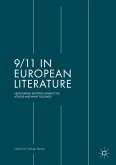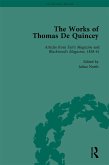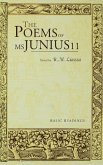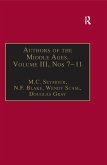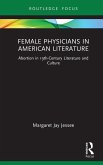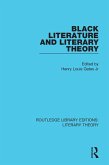Literature after 9/11 (eBook, PDF)
Redaktion: Keniston, Ann; Quinn, Jeanne Follansbee
49,95 €
49,95 €
inkl. MwSt.
Sofort per Download lieferbar

25 °P sammeln
49,95 €
Als Download kaufen

49,95 €
inkl. MwSt.
Sofort per Download lieferbar

25 °P sammeln
Jetzt verschenken
Alle Infos zum eBook verschenken
49,95 €
inkl. MwSt.
Sofort per Download lieferbar
Alle Infos zum eBook verschenken

25 °P sammeln
Literature after 9/11 (eBook, PDF)
Redaktion: Keniston, Ann; Quinn, Jeanne Follansbee
- Format: PDF
- Merkliste
- Auf die Merkliste
- Bewerten Bewerten
- Teilen
- Produkt teilen
- Produkterinnerung
- Produkterinnerung

Bitte loggen Sie sich zunächst in Ihr Kundenkonto ein oder registrieren Sie sich bei
bücher.de, um das eBook-Abo tolino select nutzen zu können.
Hier können Sie sich einloggen
Hier können Sie sich einloggen
Sie sind bereits eingeloggt. Klicken Sie auf 2. tolino select Abo, um fortzufahren.

Bitte loggen Sie sich zunächst in Ihr Kundenkonto ein oder registrieren Sie sich bei bücher.de, um das eBook-Abo tolino select nutzen zu können.
Drawing on trauma theory, genre theory, political theory, and theories of post-modernity, space, and temporality, Literature after 9/11 suggests ways that these often distinct discourses can be recombined and set into dialogue with one another as it explores 9/11's effects on literature and literature's attempts to convey 9/11.
- Geräte: PC
- mit Kopierschutz
- eBook Hilfe
- Größe: 3.53MB
Andere Kunden interessierten sich auch für
![9/11 in European Literature (eBook, PDF) 9/11 in European Literature (eBook, PDF)]() 9/11 in European Literature (eBook, PDF)69,95 €
9/11 in European Literature (eBook, PDF)69,95 €![The Works of Thomas De Quincey, Part II vol 11 (eBook, PDF) The Works of Thomas De Quincey, Part II vol 11 (eBook, PDF)]() Grevel LindopThe Works of Thomas De Quincey, Part II vol 11 (eBook, PDF)54,95 €
Grevel LindopThe Works of Thomas De Quincey, Part II vol 11 (eBook, PDF)54,95 €![The Poems of MS Junius 11 (eBook, PDF) The Poems of MS Junius 11 (eBook, PDF)]() The Poems of MS Junius 11 (eBook, PDF)55,95 €
The Poems of MS Junius 11 (eBook, PDF)55,95 €![Authors of the Middle Ages, Volume III, Nos 7-11 (eBook, PDF) Authors of the Middle Ages, Volume III, Nos 7-11 (eBook, PDF)]() N. F. BlakeAuthors of the Middle Ages, Volume III, Nos 7-11 (eBook, PDF)54,95 €
N. F. BlakeAuthors of the Middle Ages, Volume III, Nos 7-11 (eBook, PDF)54,95 €![Female Physicians in American Literature (eBook, PDF) Female Physicians in American Literature (eBook, PDF)]() Margaret Jay JesseeFemale Physicians in American Literature (eBook, PDF)22,95 €
Margaret Jay JesseeFemale Physicians in American Literature (eBook, PDF)22,95 €![Modernist Literature and European Identity (eBook, PDF) Modernist Literature and European Identity (eBook, PDF)]() Birgit Van PuymbroeckModernist Literature and European Identity (eBook, PDF)44,95 €
Birgit Van PuymbroeckModernist Literature and European Identity (eBook, PDF)44,95 €![Black Literature and Literary Theory (eBook, PDF) Black Literature and Literary Theory (eBook, PDF)]() Black Literature and Literary Theory (eBook, PDF)39,95 €
Black Literature and Literary Theory (eBook, PDF)39,95 €-
-
-
Drawing on trauma theory, genre theory, political theory, and theories of post-modernity, space, and temporality, Literature after 9/11 suggests ways that these often distinct discourses can be recombined and set into dialogue with one another as it explores 9/11's effects on literature and literature's attempts to convey 9/11.
Dieser Download kann aus rechtlichen Gründen nur mit Rechnungsadresse in A, B, BG, CY, CZ, D, DK, EW, E, FIN, F, GR, HR, H, IRL, I, LT, L, LR, M, NL, PL, P, R, S, SLO, SK ausgeliefert werden.
Produktdetails
- Produktdetails
- Verlag: Taylor & Francis eBooks
- Seitenzahl: 314
- Erscheinungstermin: 15. April 2013
- Englisch
- ISBN-13: 9781135024666
- Artikelnr.: 39041940
- Verlag: Taylor & Francis eBooks
- Seitenzahl: 314
- Erscheinungstermin: 15. April 2013
- Englisch
- ISBN-13: 9781135024666
- Artikelnr.: 39041940
- Herstellerkennzeichnung Die Herstellerinformationen sind derzeit nicht verfügbar.
Ann Keniston is an assistant professor of English at the University of Nevada-Reno, and is the author of Overheard Voices: Address and Subjectivity in Postmodern American Poetry (Routledge 2006), and a poetry collection, The Caution of Human Gestures (David Robert, 2005). Jeanne Follansbee Quinn is director of studies for the Program in History and Literature at Harvard University and has published essays on James Agee and Walker Evans, Richard Wright and American pragmatism. She is completing a book on anti-fascist aesthetics in the United States during the 1930s, Democratic Aesthetics: Popular Front Anti-Fascism.
Acknowledgments
Introduction: "Representing 9/11: Literature and Resistance," Ann Keniston
and Jeanne Follansbee Quinn
Part One: Experiencing 9/11: Time, Trauma, and the Incommensurable Event
Chapter 1: "Portraits of Grief: Telling Details and the New Genres of
Testimony," Nancy K. Miller
Chapter 2: "Foer, Spiegelman, and 9/11's Timely Traumas," Mitchum Huehls
Chapter 3: "Graphic Implosion: Politics, Time, and Value in Post-9/11
Comics," Simon Cooper and Paul Atkinson
Chapter 4: "'Sometimes Things Disappear': Absence and Mutability in Colson
Whitehead's The Colossus of New York," Stephanie Li
Chapter 5: "Witnessing 9/11: Art Spiegelman and the Persistence of Trauma,"
Richard Glejzer
Part Two: 9/11 Politics and Representation
Chapter 6: "Seeing Terror, Feeling Art: Public and Private in Post-9/11
Literature," Michael Rothberg
Chapter 7: "'We're not a friggin' girl band': September 11, Masculinity,
and the British-American Relationship in David Hare's Stuff Happens and Ian
McEwan's Saturday," Rebecca Carpenter
Chapter 8: "'We're the culture that cried wolf': Discourse and Terrorism in
Chuck Palahniuk's Lullaby," Lance Allen Rubin
Chapter 9: "Still Life: 9/11's Falling Bodies," Laura Frost
Part Three: 9/11 and the Literary Tradition
Chapter 10: "Telling It Like It Isn't," David Simpson
Chapter 11: "Portraits 9/11/01: The New York Times and the Pornography of
Grief," Simon Stow
Chapter 12: "Theater after 9/11," Robert Brustein
Chapter 13: "Real Planes and Imaginary Towers: Philip Roth's The Plot
Against America as 9/11 Prosthetic Screen," Charles Lewis
Chapter 14: "Precocious Testimony: Poetry and the Uncommemorable," Jeffrey
Gray
Afterword: "Imagination and Monstrosity," Robert Pinsky
Contributors
Index
Introduction: "Representing 9/11: Literature and Resistance," Ann Keniston
and Jeanne Follansbee Quinn
Part One: Experiencing 9/11: Time, Trauma, and the Incommensurable Event
Chapter 1: "Portraits of Grief: Telling Details and the New Genres of
Testimony," Nancy K. Miller
Chapter 2: "Foer, Spiegelman, and 9/11's Timely Traumas," Mitchum Huehls
Chapter 3: "Graphic Implosion: Politics, Time, and Value in Post-9/11
Comics," Simon Cooper and Paul Atkinson
Chapter 4: "'Sometimes Things Disappear': Absence and Mutability in Colson
Whitehead's The Colossus of New York," Stephanie Li
Chapter 5: "Witnessing 9/11: Art Spiegelman and the Persistence of Trauma,"
Richard Glejzer
Part Two: 9/11 Politics and Representation
Chapter 6: "Seeing Terror, Feeling Art: Public and Private in Post-9/11
Literature," Michael Rothberg
Chapter 7: "'We're not a friggin' girl band': September 11, Masculinity,
and the British-American Relationship in David Hare's Stuff Happens and Ian
McEwan's Saturday," Rebecca Carpenter
Chapter 8: "'We're the culture that cried wolf': Discourse and Terrorism in
Chuck Palahniuk's Lullaby," Lance Allen Rubin
Chapter 9: "Still Life: 9/11's Falling Bodies," Laura Frost
Part Three: 9/11 and the Literary Tradition
Chapter 10: "Telling It Like It Isn't," David Simpson
Chapter 11: "Portraits 9/11/01: The New York Times and the Pornography of
Grief," Simon Stow
Chapter 12: "Theater after 9/11," Robert Brustein
Chapter 13: "Real Planes and Imaginary Towers: Philip Roth's The Plot
Against America as 9/11 Prosthetic Screen," Charles Lewis
Chapter 14: "Precocious Testimony: Poetry and the Uncommemorable," Jeffrey
Gray
Afterword: "Imagination and Monstrosity," Robert Pinsky
Contributors
Index
Acknowledgments
Introduction: "Representing 9/11: Literature and Resistance," Ann Keniston
and Jeanne Follansbee Quinn
Part One: Experiencing 9/11: Time, Trauma, and the Incommensurable Event
Chapter 1: "Portraits of Grief: Telling Details and the New Genres of
Testimony," Nancy K. Miller
Chapter 2: "Foer, Spiegelman, and 9/11's Timely Traumas," Mitchum Huehls
Chapter 3: "Graphic Implosion: Politics, Time, and Value in Post-9/11
Comics," Simon Cooper and Paul Atkinson
Chapter 4: "'Sometimes Things Disappear': Absence and Mutability in Colson
Whitehead's The Colossus of New York," Stephanie Li
Chapter 5: "Witnessing 9/11: Art Spiegelman and the Persistence of Trauma,"
Richard Glejzer
Part Two: 9/11 Politics and Representation
Chapter 6: "Seeing Terror, Feeling Art: Public and Private in Post-9/11
Literature," Michael Rothberg
Chapter 7: "'We're not a friggin' girl band': September 11, Masculinity,
and the British-American Relationship in David Hare's Stuff Happens and Ian
McEwan's Saturday," Rebecca Carpenter
Chapter 8: "'We're the culture that cried wolf': Discourse and Terrorism in
Chuck Palahniuk's Lullaby," Lance Allen Rubin
Chapter 9: "Still Life: 9/11's Falling Bodies," Laura Frost
Part Three: 9/11 and the Literary Tradition
Chapter 10: "Telling It Like It Isn't," David Simpson
Chapter 11: "Portraits 9/11/01: The New York Times and the Pornography of
Grief," Simon Stow
Chapter 12: "Theater after 9/11," Robert Brustein
Chapter 13: "Real Planes and Imaginary Towers: Philip Roth's The Plot
Against America as 9/11 Prosthetic Screen," Charles Lewis
Chapter 14: "Precocious Testimony: Poetry and the Uncommemorable," Jeffrey
Gray
Afterword: "Imagination and Monstrosity," Robert Pinsky
Contributors
Index
Introduction: "Representing 9/11: Literature and Resistance," Ann Keniston
and Jeanne Follansbee Quinn
Part One: Experiencing 9/11: Time, Trauma, and the Incommensurable Event
Chapter 1: "Portraits of Grief: Telling Details and the New Genres of
Testimony," Nancy K. Miller
Chapter 2: "Foer, Spiegelman, and 9/11's Timely Traumas," Mitchum Huehls
Chapter 3: "Graphic Implosion: Politics, Time, and Value in Post-9/11
Comics," Simon Cooper and Paul Atkinson
Chapter 4: "'Sometimes Things Disappear': Absence and Mutability in Colson
Whitehead's The Colossus of New York," Stephanie Li
Chapter 5: "Witnessing 9/11: Art Spiegelman and the Persistence of Trauma,"
Richard Glejzer
Part Two: 9/11 Politics and Representation
Chapter 6: "Seeing Terror, Feeling Art: Public and Private in Post-9/11
Literature," Michael Rothberg
Chapter 7: "'We're not a friggin' girl band': September 11, Masculinity,
and the British-American Relationship in David Hare's Stuff Happens and Ian
McEwan's Saturday," Rebecca Carpenter
Chapter 8: "'We're the culture that cried wolf': Discourse and Terrorism in
Chuck Palahniuk's Lullaby," Lance Allen Rubin
Chapter 9: "Still Life: 9/11's Falling Bodies," Laura Frost
Part Three: 9/11 and the Literary Tradition
Chapter 10: "Telling It Like It Isn't," David Simpson
Chapter 11: "Portraits 9/11/01: The New York Times and the Pornography of
Grief," Simon Stow
Chapter 12: "Theater after 9/11," Robert Brustein
Chapter 13: "Real Planes and Imaginary Towers: Philip Roth's The Plot
Against America as 9/11 Prosthetic Screen," Charles Lewis
Chapter 14: "Precocious Testimony: Poetry and the Uncommemorable," Jeffrey
Gray
Afterword: "Imagination and Monstrosity," Robert Pinsky
Contributors
Index

